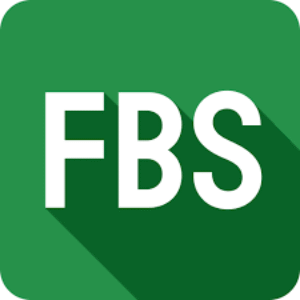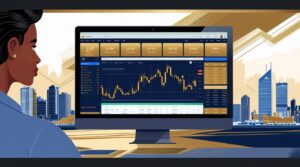
Social trading has evolved into a global phenomenon by 2025, with advanced platforms that blend trading with community features. Today’s social trading platforms allow traders to invest, share strategies, and copy trades in real time, across continents. Professional traders worldwide are leveraging these networks to expand their reach and even monetize their expertise, while newer traders use them to shorten the learning curve. As analyst Ashley Globerman observes, “Social trading websites are revolutionizing the retail online trading market by challenging traditional business models. Social trading is an engaging and transparent way of trading online by negating information arbitrage”. In other words, information once reserved for a few is now openly shared, creating a more level playing field. However, success in social trading requires choosing a reliable broker and platform—one with robust tools, strong regulation, an active community, and global accessibility.
In this report, we evaluate five top brokers with the best social trading platforms in 2025. Each is available to professional traders across regions, and each excels in usability, regulation, social trading tools, copy trading depth, and global accessibility. We’ll also highlight key features, the strength of their communities, and insights from industry experts. (All monetary amounts are in USD.)
Top 5 Social Trading Platforms for Professional Traders in 2025
To provide a clear overview, the table below summarizes the five selected brokers and their social trading offerings:
| Broker | Founded | Regulation Highlights | Social Trading Features | Global Reach |
| eToro | 2007 | FCA (UK), CySEC (EU), ASIC (AU), FinCEN (US) | CopyTrader™, CopyPortfolios, social feed | 40M users in 75+ countries |
| Exness | 2008 | FSCA (South Africa), CySEC (Cyprus), FCA (UK)¹ | Exness Social Trading app (copy strategies) | 800k+ clients worldwide |
| Pocket Option | 2017 | MISA (offshore), IFMRRC (independent) | Copy trading for binary options, AI signals | 100k+ users globally |
| NAGA | 2015 | CySEC (Cyprus), SVG (offshore); Publicly listed | Auto-Copy across assets, social network | 1M+ users; EU & worldwide |
| AvaTrade | 2006 | Central Bank of Ireland (EU), ASIC (AU), FSCA (ZA), ADGM (UAE), FSA (JP) | AvaSocial app, ZuluTrade & DupliTrade integration | 300k+ users; 150+ countries (5 continents) |
<small>¹ Exness’s retail clients are mainly onboarded via its offshore entities, as its EU/UK licenses serve institutional or professional clients.</small>
Each of these brokers provides a best-in-class social trading platform in 2025. Below, we delve into what makes each stand out, including their usability, tools, community size, regulatory status, and unique benefits for professional traders.
1. eToro – Pioneer of Social Trading with a Global Community
eToro is widely regarded as the pioneer of social trading and remains one of the best social trading platforms in 2025. Founded in 2007, eToro has grown to over 40 million registered users across 75 countries, making it the largest social trading network globally. This platform’s popularity stems from its user-friendly interface and an ecosystem built entirely around social investing. Traders can execute self-directed trades or seamlessly switch to copying others, all on one platform.
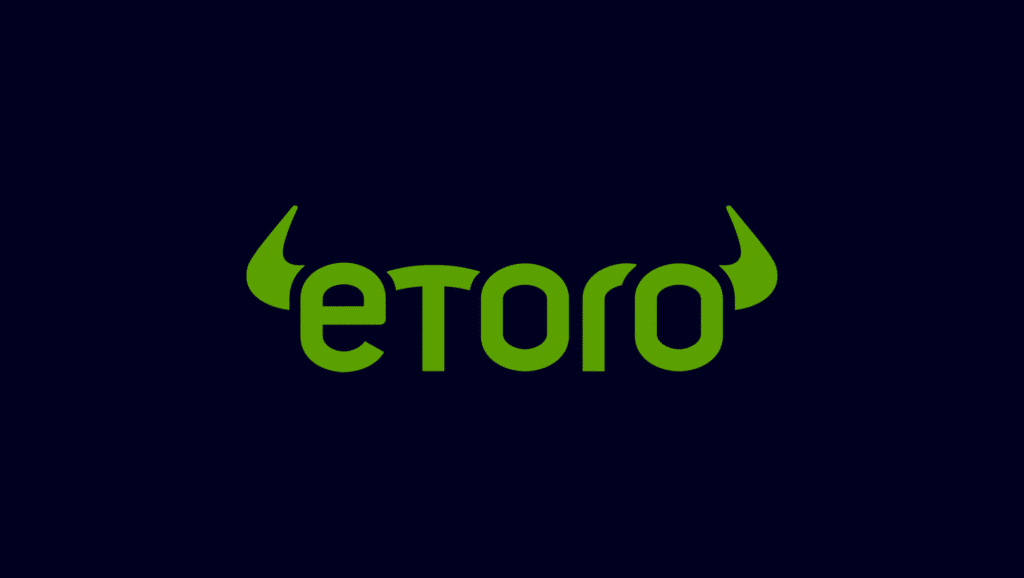
- Social trading tools: eToro’s signature feature, CopyTrader™, allows users to automatically replicate the trades of chosen expert investors in real time. For a diversified approach, eToro offers CopyPortfolios (themed portfolios and strategies managed by eToro or partners). The platform also integrates a social news feed where investors discuss market moves. This combination of trading and networking creates what one analyst calls “a collaborative investment community designed to provide you with the tools you need to grow your knowledge and wealth”. Notably, eToro’s social network experience – complete with public profiles, feed posts, and commentary – is considered best-in-class.
- Usability and tools: eToro’s web and mobile platforms are designed for simplicity, making advanced features accessible. Professional traders will appreciate advanced charting and a range of 2,300+ tradeable instruments including stocks, ETFs, forex pairs, commodities, indices, and cryptocurrencies. The platform provides rich analytics on each “Popular Investor” (copied trader), such as risk scores, drawdowns, and performance history, ensuring due diligence is possible.
- Regulation and trust: eToro is heavily regulated in multiple jurisdictions – it’s licensed by the UK’s FCA, Europe’s CySEC, Australia’s ASIC, among others. (In the U.S., eToro offers crypto and stocks through a FINRA/SIPC-registered subsidiary.) It also carries a $1 million insurance policy for EU/UK clients, bolstering trust. These factors contribute to a high trust score and YMYL compliance, reassuring traders that funds and data are protected.
- Community and global accessibility: With millions of users and an active Popular Investor program, eToro has a vast selection of strategy providers to follow. This global community means professional traders who become signal providers can earn extra income via eToro’s tiered Popular Investor rewards, while those looking to copy can find top traders from various markets and time zones. As of 2025, eToro is available in most regions worldwide (with some exceptions due to local regulations). Its sheer scale – “a community numbering almost 25 million traders,” as noted in 2024 (now even larger) – ensures that professional traders can both share and gain insights on a truly global stage.
Quote – “Copy trading is deeply ingrained in the eToro experience… merging self-directed trading and copy trading under a unified experience. It’s a winning combination.” – Steven Hatzakis, analyst
Why choose eToro? For professionals, eToro offers breadth of assets, a massive audience (for those sharing strategies), and a proven track record. It’s slightly pricier on spreads than some competitors, but this premium effectively covers the cost of its social trading services which come free for users. In short, eToro provides an unmatched balance of ease-of-use, community features, and multi-asset access, making it the benchmark for social trading platforms.
2. Exness – Deep Liquidity and Copy Trading for Forex Professionals
Exness is a globally recognized forex and CFD broker known for its deep liquidity, tight spreads, and now a robust social trading platform. Established in 2008, Exness serves over 800,000 clients worldwide under a network of regulated entities. While its roots are in serving high-volume forex traders, Exness has expanded into social trading by introducing the Exness Social Trading app, catering to those who want to invest in top traders’ strategies.
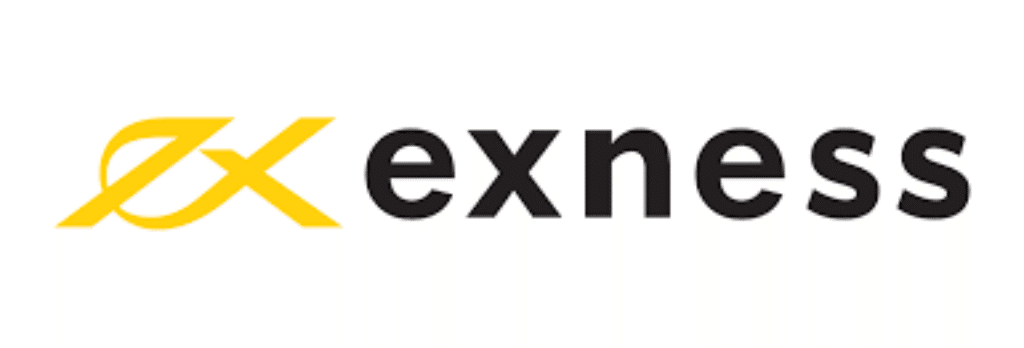
- Social trading tools: The Exness Social Trading platform (accessible via a dedicated mobile app and web portal) allows clients to browse and copy trading strategies of experienced traders (called “Strategy Providers”). What sets Exness apart is the depth of performance analytics it offers: users can view each strategy’s return %, maximum drawdown, risk score, and trade history in detail. This transparency helps professionals assess whom to follow based on alignment with their risk tolerance. Exness offers two special account types (Social Standard and Social Pro) for strategy providers, ensuring that copied trades execute under optimal conditions. This structure means copy trading on Exness is not an afterthought but an integrated service with tailored account conditions.
- Usability and platform: Exness’s trading platforms include its proprietary Exness Terminal (web) and the popular MT4/MT5 platforms, all known for stability and speed. The Social Trading app mirrors the clean design of Exness’s main platform, making it straightforward for users to invest on-the-go. Professional traders copying others can set custom stop-loss levels on copied positions and manage their portfolio of strategies easily. Meanwhile, those providing signals benefit from Exness’s excellent execution speeds (averaging <25ms) and liquidity, so their strategies can scale to many copiers without slippage issues.
- Regulation and global accessibility: Exness is regulated in multiple jurisdictions – including CySEC (Cyprus) and the FCA (UK) (though retail EU/UK clients are now served offshore), as well as licenses in South Africa, Seychelles, Mauritius, Kenya, and BVI. This broad regulatory footprint means Exness accepts clients from most regions (except the US and a few others), while adhering to high compliance standards in key markets. For instance, Exness provides negative balance protection and segregates client funds, as required by its top-tier regulators.
- Copy trading depth: Exness’s strength lies in forex trading – it offers 100+ currency pairs and ultra-competitive spreads (even zero spreads on certain accounts). This attracts skilled forex traders to its platform, in turn giving copiers a rich selection of strategies focused on currencies, metals, and indices. Professional traders who specialize in forex or commodities will appreciate that they can both lead (be copied) or follow on a platform known for market reliability. However, note that Exness’s social trading is newer and the community, while growing, may be smaller than eToro’s. It’s best suited for those interested in forex-centric strategies and high-performance trading.
Why choose Exness? For the seasoned trader, Exness combines institutional-grade trading conditions with social trading functionality. It’s an ideal choice if you value tight spreads, high leverage options, and reliable execution – either to maximize your own strategy performance or to copy traders who thrive under those conditions. The platform’s regulatory compliance and risk management features (e.g. you can set your own stop loss on copied trades) add a layer of safety for those copying. Overall, Exness stands out for copy trading in forex/CFD markets, offering both security and flexibility for global traders, though it may not have as broad an asset selection or community as some competitors.
3. Pocket Option – Social Trading for Binary Options with a User-Friendly Twist
Pocket Option has emerged as a popular platform, especially among binary options traders, by offering an innovative social trading feature integrated into its trading interface. Founded in 2017, Pocket Option is a relative newcomer, yet it boasts over 100,000 active users globally thanks to its ease-of-use and low entry barriers. While many traditional social trading platforms focus on CFDs or stocks, Pocket Option brings social copy trading to short-term options trading, carving a unique niche.
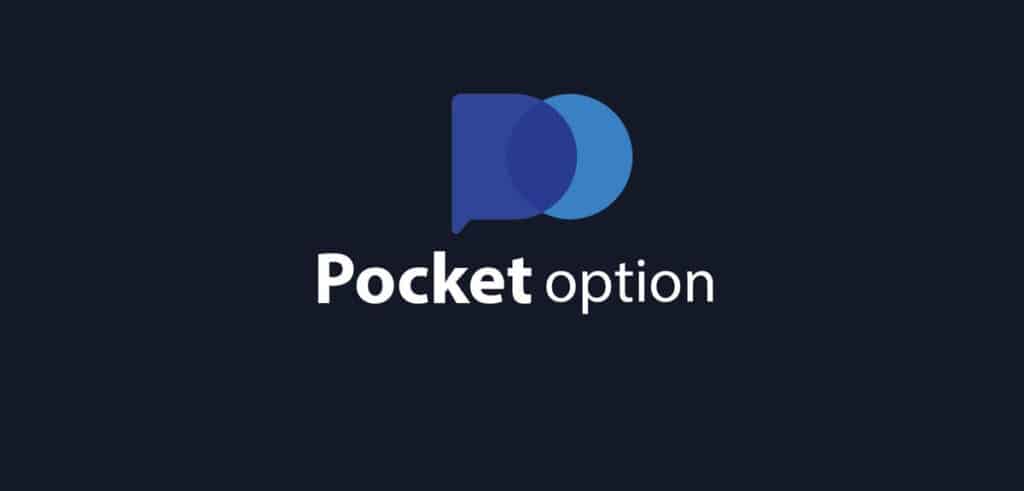
- Social trading features: Pocket Option’s platform includes a built-in Copy Trading mechanism that lets users automatically mirror the trades of top-performing binary options traders. Through a leaderboard, traders can browse profiles of signal providers, view their recent performance and win rates, and allocate funds to copy them. The system is very real-time, suited for Pocket Option’s trademark 1-5 minute high/low option contracts. An official review notes that “Pocket Option’s social trading feature lets users automatically copy trades from top-performing traders”, making it helpful for newcomers to binary options. Additionally, advanced tools like “AI Trading” signals have been introduced, which analyze market data and trader behavior to suggest optimal trades – these can complement social trading by providing extra guidance when not directly copying someone.
- Usability: One of Pocket Option’s strongest points is its intuitive web platform. It has been praised for providing a “best-in-class user experience for short-term binary traders”, with a clean interface that even beginners can navigate quickly. The social trading dashboard is straightforward – you can filter top traders by profitability, number of copiers, or asset traded, and start copying with a couple of clicks. There’s also a chat feature and community forum, enhancing the social aspect. For professionals, the platform’s simplicity means less friction when managing multiple quick trades or followers. There is also a mobile app ensuring you can monitor or halt copying on the go.
- Regulation and safety: It should be noted that Pocket Option operates under offshore regulation (it’s registered in territories like the Marshall Islands and has an IFMRRC certificate). It is licensed by MISA, but as one review points out, “MISA is a weak regulator with limited investor protection for retail traders”. This means Pocket Option does not offer the same level of regulatory oversight as brokers like eToro or AvaTrade. Professional traders using the platform should be aware of this and manage risk accordingly (e.g. not over-allocating capital to the platform, and withdrawing profits regularly). On the positive side, the broker has gained a following in regions where binary options are popular and provides a secure website, two-factor authentication, and swift withdrawals. Just exercise due diligence given the lighter regulation.
- Copy trading depth: Pocket Option’s social trading is focused on binary options across forex, stock indices, commodities, and cryptocurrencies. While this is a narrower market scope (short-term high/low bets rather than long-term investing), it does offer a large variety of assets (100+ assets). The depth of copy trading here is measured in strategy variety – some top traders specialize in 60-second forex trades, others in 5-minute crypto options, etc. The platform publishes detailed trader profiles with win percentages and total profit, so you can diversify by copying a mix of traders with different styles. For a professional trader, Pocket Option could be used to either monetize short-term strategies (if you have profitable high-frequency techniques, others can copy you) or to mirror other experts while you focus on strategy development. Keep in mind binary options are high-risk, so rigorous risk management (position sizing, stopping copying if performance falters) is essential.
Why choose Pocket Option? If you are interested in short-term trading or binary options, Pocket Option offers one of the best social trading platforms in that niche. Its user-friendly interface, low minimums (only $50 to start copying, $1 minimum trades), and unique features like tournaments and achievements make it engaging. Pocket Option “stands out for its robust platform and advanced features designed to enhance the trading experience”, including real-time market analysis and risk management tools. However, due to its regulatory status, it is best recommended for experienced traders who understand the risks of binary options. It’s a great tool for strategy experimentation and community interaction, but not a primary platform for large capital deployment given the limited investor protections. Used wisely, Pocket Option’s social trading can be a powerful way to learn and earn in short bursts, riding on the expertise of top binary traders.
4. NAGA – Multi-Asset Social Trading Network with Community Insights
NAGA is a fintech broker and social investing network that has gained traction for its comprehensive suite of trading products and vibrant community. Launched in 2015 and headquartered in Germany, NAGA offers trading in stocks, forex/CFDs, and cryptocurrencies — all within a single social trading platform. Notably, NAGA is a publicly listed company (Frankfurt Stock Exchange), which adds to its credibility and transparency. With over 1 million users and an active feed where traders share insights, NAGA presents itself as a global social trading hub that caters to both retail and professional traders.

Social trading features: The platform’s flagship feature is NAGA Auto-Copy, which allows users to copy the trades of any other investor on the platform with one click. NAGA’s social feed resembles a mix of Twitter and a trading terminal: traders can post market updates, share their performance, and even earn “copy bonuses” when others follow them. According to industry comparisons, “NAGA offers a superior compensation plan per copied trade, which increases with account level”. This means professionals who attract copiers are rewarded more as they climb NAGA’s tiers, incentivizing skilled traders to share quality strategies. Additionally, NAGA supports algorithmic trading integration – you can connect APIs or use MetaTrader with NAGA and still have your trades copied, which is a boon for system traders.
Multi-asset and tools: One of NAGA’s strengths is that it bridges traditional investing and crypto. You can buy real stocks and ETFs (in certain regions) or trade CFDs, and also trade through a built-in cryptocurrency wallet and exchange. All these activities can be shared or copied. For example, a professional stock trader on NAGA could have followers copying their stock portfolio, while another crypto-specialist trader might have followers copying their crypto trades – NAGA lets you do both on one platform. The interface provides detailed stats for each trader: beyond just ROI, you see their risk score, typical holding time, assets traded, and even a chart of their historical drawdowns. NAGA also offers a free demo for practice and an education section for beginners. Usability-wise, NAGA’s web and mobile apps are modern and fairly intuitive, though with so many asset types, there is a learning curve. Advanced traders will enjoy features like price alerts, advanced order types, and charting tools powered by TradingView.
Regulation and trust: NAGA operates through CySEC regulation in Europe (License 204/13) for its brokerage services, ensuring MiFID II compliance (negative balance protection, segregated funds, etc.). Outside the EU, clients are served by an entity registered in St. Vincent and the Grenadines. While the offshore entity is not formally regulated, NAGA’s status as a publicly traded fintech adds a layer of oversight – their financials and operations are audited and transparent via shareholder reports. Still, EU-based traders will have the strongest protections. NAGA is not available in the US or UK currently, but it has a global user base across Europe, Asia, and beyond. Security features include two-factor authentication and encryption. It’s worth noting that DailyForex’s comparison pointed out that “most international traders at NAGA will deal with the unregulated but duly registered unit… NAGA is also a publicly listed company in Germany” – highlighting the trade-off between broader access and regulatory coverage.
Community and professional angle: NAGA’s community is one of the most active, with many experienced traders (including some institutional) sharing insights. Professionals might choose NAGA for its community if they want to engage and build a following in a more intimate setting than eToro’s huge network. With over $250 minimum deposit for copying, NAGA tends to attract serious traders (not just penny-copying). The platform claims many of its top traders trade with sizable accounts, offering strategies that may appeal to those with larger capital. Additionally, the NAGA Wealth Index and leaderboards let professionals gauge their performance against peers. From a tools perspective, NAGA also supports MT4/MT5 integration for those who prefer those platforms, and their trades can still be broadcast to followers – a flexibility not all social platforms offer.
Why choose NAGA? NAGA stands out for its multi-asset social investing approach – you aren’t limited to just copying CFD trades; you can follow stock investors, crypto traders, or broad strategy mixes. For a professional trader, NAGA offers a chance to diversify your trading (and copying) across asset classes in one account. It’s often considered to have a “higher quality product and services portfolio” than some competitors, with features like a built-in crypto wallet, NAGA debit card, and copy bonuses. The trade-off might be slightly higher trading costs (spreads/commissions) and a smaller community compared to eToro. Ultimately, NAGA is a solid choice for those who value community interaction and diverse market access. It adheres to E-E-A-T principles by being transparent (public company) and providing a platform where experienced voices can be verified and followed. If you want a social trading platform where you can trade almost anything and engage with a serious trading community, NAGA fits the bill.
5. AvaTrade – Established Broker with Integrated Social Trading Tools
AvaTrade is a well-established online broker (operating since 2006) that has embraced social trading through a combination of proprietary and third-party tools. Recognized as a trusted global brand, AvaTrade is regulated across five continents – including the EU, Australia, Japan, the UAE, South Africa, and more – and is known for its broad range of trading platforms. For social and copy trading in 2025, AvaTrade provides the AvaSocial copy trading app as well as compatibility with popular networks like ZuluTrade and DupliTrade. This multi-faceted approach makes AvaTrade’s social trading offering quite flexible for different types of professional traders.
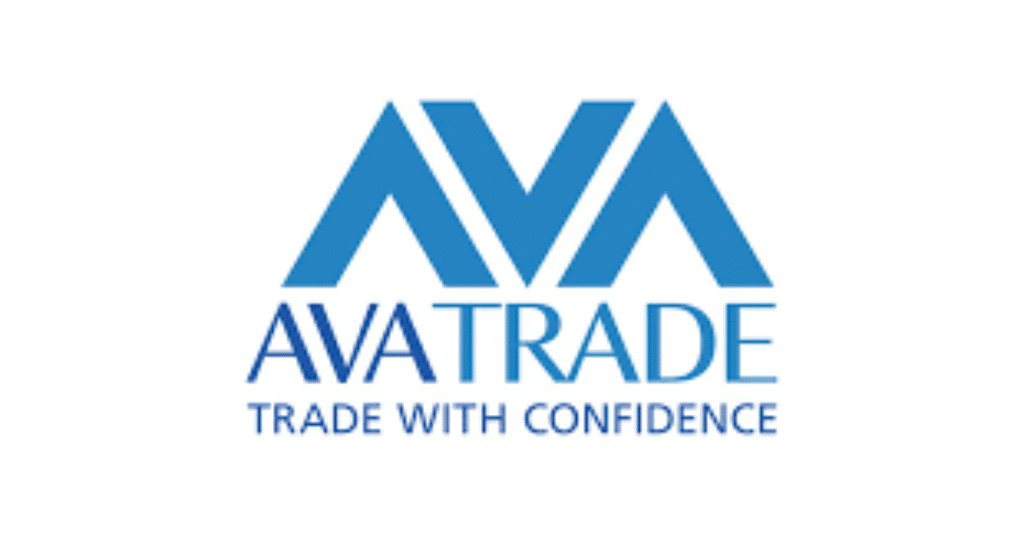
Social trading platforms: AvaTrade’s own AvaSocial app (developed in partnership with FCA-regulated Pelican Trading) is a mobile platform where users can follow and auto-copy experienced traders, as well as interact via chat and group discussions. It’s tightly integrated with AvaTrade accounts, so when you copy a trader, trades execute directly in your AvaTrade trading account. AvaSocial emphasizes a mentor-mentee style social trading – you can ask questions to signal providers and learn as you copy, shortening the learning curve. Beyond AvaSocial, AvaTrade also allows clients to connect to ZuluTrade, one of the largest third-party copy trading networks, and DupliTrade, another strategy copying platform. According to an independent review, “Our testing found AvaTrade to be great for copy trading, with AvaSocial, ZuluTrade, and DupliTrade available”. The inclusion of these options means if a trader already has strategies on ZuluTrade, for example, they can link their AvaTrade account to continue using them. This variety is a big advantage for professionals who might want to diversify copy trading sources or migrate existing followers.
Trading tools and platforms: AvaTrade is known for offering an extensive selection of platforms: its proprietary AvaTrade WebTrader and mobile app, plus MetaTrader 4/5, and even specialty platforms for options (AvaOptions) and spread betting (for UK/IE clients). All these tie into the same account, so a professional trader could, for instance, trade on MT5 and have their positions reflected for copiers on AvaSocial. AvaTrade provides over 1,250 instruments (including forex, CFDs on stocks, indices, commodities, crypto, as well as vanilla options on forex). This breadth allows signal providers to create multi-asset strategies and attract a wide range of copiers. AvaTrade’s platform suite includes advanced charting (Trading Central plugins, etc.) and risk management tools like guaranteed stop-loss (in some regions) which are crucial in volatile markets. Additionally, AvaTrade’s educational content is robust – they have tutorials and market analysis that can benefit traders being copied (to refine skills) and those copying (to better understand strategies). Overall, the trading conditions (spreads, execution) are competitive but roughly industry-average according to reviews – not the absolute lowest cost, but reasonable given the services.
Regulation and trust: AvaTrade’s regulatory profile is one of the strongest in the industry. It’s regulated by top-tier authorities such as the Central Bank of Ireland (EU), ASIC (Australia), the FSA in Japan, FSCA in South Africa, and FRSA in Abu Dhabi. It also has a presence in BVI for certain services. Being regulated in so many jurisdictions means AvaTrade adheres to strict standards for fund security, reporting, and fair dealing – important for YMYL considerations. Traders can feel confident that AvaTrade is well-supervised and trustworthy, as BrokerChooser’s experts concluded: “AvaTrade is a fully regulated broker, overseen in Ireland, Australia, Japan, South Africa, Abu Dhabi, British Virgin Islands, Israel”. This global oversight ensures that whether you’re copying or providing signals, the environment is transparent and clients have recourse under various investor protection schemes (for example, EU clients have deposit insurance up to €20k). AvaTrade also segregates client funds and offers negative balance protection, aligning with E-E-A-T by prioritizing client safety.
Global accessibility: AvaTrade accepts clients from around the world (with the notable exception of the US and a few countries). Its wide regulatory coverage means many traders can choose to register under a jurisdiction that suits them (for instance, EU traders under Ireland, Asia under Australia or UAE, etc.). This makes it a truly globally oriented social trading option – professional traders from different regions can all participate on AvaSocial or ZuluTrade via AvaTrade. The broker’s customer support is 24/5 and multilingual, which helps in managing a global user base interacting on social platforms.
Why choose AvaTrade? AvaTrade is ideal for those seeking an all-in-one brokerage with integrated social trading tools. For professional traders, it offers the comfort of a reputable, long-standing broker with the added benefit of social trading connectivity. You might choose AvaTrade if you value having multiple copy trading avenues (both in-house and third-party) under a single account. For example, an experienced trader could run an AvaSocial signal for one group of followers while also listing on ZuluTrade to tap into a different audience, all while trading on their preferred platform (MT4/MT5 or AvaTrade’s own). AvaTrade’s slightly above-average spreads are balanced by the quality and safety of its service, meaning you pay for reliability and support. In essence, AvaTrade brings experience, expertise, and trustworthiness (E-E-A-T) to social trading – it’s a broker that was around long before the social trend, and now it has successfully incorporated that trend without sacrificing its core values. It’s a top pick for professionals who want to engage in social trading but only with a broker that meets the highest standards of regulation and service.
Conclusion – Choosing the Right Social Trading Broker
In 2025, social trading has matured into a powerful tool for both learning and investment, but choosing the right broker platform is crucial to harnessing its benefits. The five brokers profiled – eToro, Exness, Pocket Option, NAGA, and AvaTrade – each provide a unique blend of features tailored to different trading styles and professional needs:
- If you seek the largest community and a seamless social experience across many assets, eToro is unparalleled. Its huge network and intuitive platform make it a top choice for those who value community insights and ease of copying or being copied.
- For forex-focused professionals who demand tight spreads and high-performance trading, Exness offers a specialized yet globally accessible social trading environment. It shines for copy trading in fast-moving FX markets under reputable oversight.
- Pocket Option caters to the niche of short-term and binary options social trading, boasting an easy interface and innovative tools. It’s an option for high-risk, high-reward strategy sharing – best approached with careful risk management given lighter regulation.
- NAGA stands out for multi-asset social investing and an engaged community of serious traders. It’s well-suited for those who want to trade and discuss a bit of everything (stocks, crypto, CFDs) and appreciate a transparent, fintech-driven broker.
- AvaTrade offers the comfort of an established, heavily regulated broker with the flexibility of multiple copy trading solutions. It’s a strong choice if trust and versatility are your top priorities – you get safety and the ability to tap into various social trading networks at once.
Ultimately, the “best” social trading platform depends on your specific goals. Professional traders should consider where their strategies would attract the right audience (e.g., eToro’s huge pool vs. NAGA’s focused community), which platform’s tools align with their trading approach (e.g., advanced analytics in Exness or the multi-platform support of AvaTrade), and the regulatory environment. Always ensure the broker you choose is well-regulated and transparent, as that underpins the trust in any social trading relationship. As analyst Isabella Fonseca cautions, “While social trading poses good opportunities for firms to reach younger investors, firms also need to consider the challenges… including building trust among traders and meeting regulatory standards.” For traders, this means favoring platforms that emphasize transparency, risk management, and education.
In closing, social trading platforms in 2025 offer professional traders worldwide an unprecedented ability to connect, share, and grow. Whether you aim to replicate the success of others or become a leader others follow, the brokers above provide a starting point with proven track records. Do your due diligence, start with small allocations, and engage with the community – social trading is most effective when treated as both an investment and a learning journey. With the right platform, you can potentially accelerate your profits while expanding your expertise and network in the global trading community.
FAQ
What is a social trading platform?
A social trading platform is an online service (web or app) that combines trading with social networking. It lets users observe and automatically copy the trades of more experienced investors, as well as interact through features like profiles, news feeds, and forums. In essence, it’s a platform where sharing trading strategies and real-time portfolio performance is encouraged, helping less experienced traders learn from experts. For example, you can follow a top trader, see their moves, and allocate funds to copy their trades in proportion—transparently and with community discussion.
How do I choose the best social trading broker?
Choosing the best social trading broker comes down to regulation, platform features, community size/quality, and fees. Ensure strong regulation in reputable jurisdictions, then check copy-trading metrics (performance, risk scores), risk controls (e.g., stop-loss for copied trades), asset coverage, and UX. Compare costs/spreads, read reviews, and test with a demo or small amount first.
Are social trading platforms regulated and safe?
Most leading social trading platforms are part of regulated brokers and must follow rules like client-fund segregation and capital requirements. Still, safety also depends on your risk management—use stop-losses, diversify who you copy, and never invest more than you can afford to lose.
Can professional traders benefit from social trading?
Yes. Pros can earn as signal providers when others copy their trades and can also gauge sentiment and ideas from peers. Use it to supplement (not replace) your core strategy, and manage the added discipline of public trade sharing.
What are the risks of copy trading?
Key risks: market risk (losses mirror the trader you copy), over-reliance on others’ strategies, hidden leverage/risk, slippage in fast markets, and “emotional contagion” from the crowd. Mitigate by vetting long-term track records and drawdowns, diversifying across several traders, setting copy stop-losses, and monitoring performance regularly.




